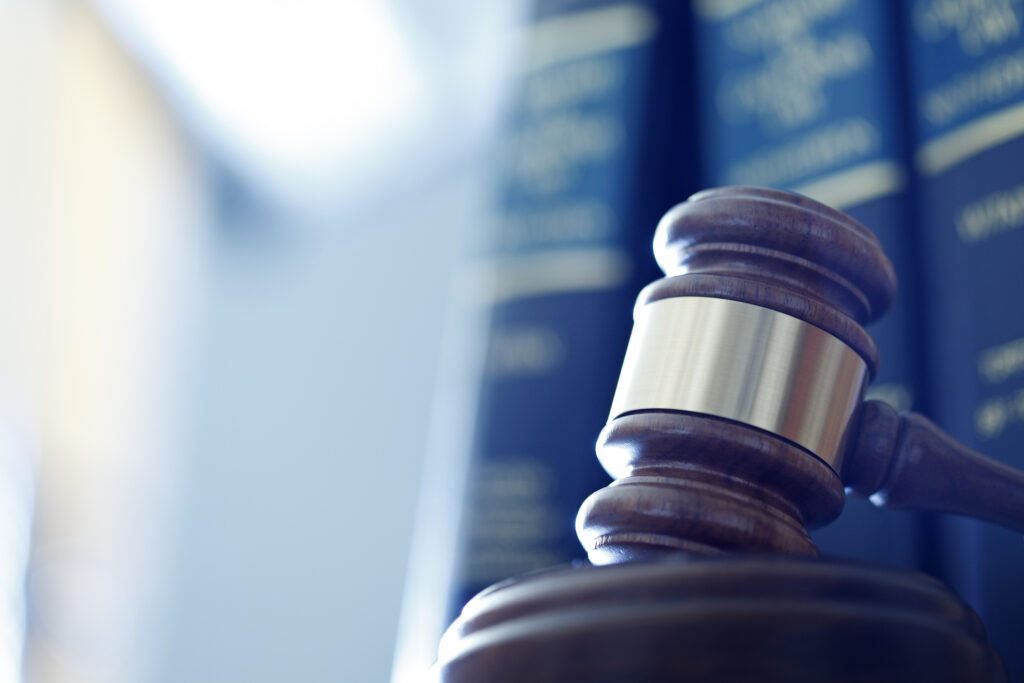
Debtor’s Counsel Failed to Mitigate Attorneys’ Fees Incurred for § 362(k) Violation by Rejecting Settlement Offer; Proceeding to Trial
Last Updated on May 29, 2023
Section 362(k) of the U.S. Bankruptcy Code entitles an individual injured by a willful violation of the automatic stay to recover actual damages, including costs and attorneys’ fees, as well as punitive damages in appropriate circumstances. 11 U.S.C. § 362(k). A recent case out of the U.S. Bankruptcy Court for the District of South Carolina provides a cautionary tale for debtors’ attorneys who are inclined to over litigate a garden-variety stay violation. In Defeo v. Winyah Surgical Specialists, P.A. (In re Defeo), No. 20-03738-JW, Adv. No. 21-80011-JW, 2022 Bankr. LEXIS 132 at *32–33 (Bankr. D.S.C. Jan. 14, 2022), the bankruptcy court reduced the attorneys’ fees requested by the debtor’s attorney by just over 85%, awarding the debtor $16.76 in actual damages, and cutting the attorneys fees from $17,500.45 down to $2,515.45.
Factual Background
While the facts of the underlying stay violation were relatively mundane, the litigation it spurred was comparatively contentious. The debtor filed a chapter 13 case on October 2, 2020, but inadvertently omitted the defendant (“Winyah”) from his bankruptcy schedules. Id. at *2. The debtor received an invoice from Winyah in November 2020 seeking payment on a prepetition medical debt. On December 4, 2020, the debtor’s attorney notified Winyah of the pending bankruptcy case. On that date, a Winyah employee updated its computer system so that it would not generate or send any additional invoices to the debtor. However, due to an apparent computer error, the settings were not saved, and on February 9, 2021, a second invoice was mailed to the debtor seeking payment on the same debt. Id. at *2–3.
The Lawsuit
On February 16, 2021, the debtor’s attorney filed a complaint seeking damages in excess of $50,000 from Winyah for a willful violation of the automatic stay arising from the single invoice sent to the debtor in February 2021. Id. at *4. In its answer, Winyah argued that its actions were not willful because the invoice had been sent due to inadvertence or computer error. Additionally, following receipt of the debtor’s complaint, a Winyah employee revisited the computer system and rectified the error that had resulted in sending the prior invoice, and Winyah notified the debtor in its answer that the issue had been corrected. During a Rule 26(f) conference on April 8, 2021, counsel for Winyah made a settlement offer to debtor’s counsel, and requested that the debtor’s attorney disclose the fees he had incurred to date in order to inform Winyah’s future settlement negotiations. Id. at *4. The debtor’s attorney refused, and insisted that he would disclose his records to Winyah only through formal discovery.
Later the same day, Winyah delivered an offer of judgment to the debtor’s attorney (in an undisclosed amount), and also provided a proposed motion for sanctions for alleged violations of Rule 11.[1]
Liability
The matter proceeded to trial, following which the court had little difficulty in finding that Winyah’s act of sending the invoice was “willful” for purposes of § 362(k), which requires only that “the creditor (1) knew the bankruptcy case existed and (2) intended to commit the act which violates the automatic stay.” Id. at *10. There was no dispute that Winyah had notice of the debtor’s bankruptcy case when the invoice was sent, and its violation was willful “because it intentionally used and relied upon its computer software to send billing invoices to its customers.” Id. at *14. The court relied a number of cases rejecting Winyah’s the “computer did it” defense in reaching its conclusion. See id. at *12–13 (quoting Rijos v. Vizcaya, 263 B.R. 382, 392 (B.A.P. 1st Cir. 2001)). The court also rejected Winyah’s reliance on two cases from the U.S. Bankruptcy Court for the Western District of North Carolina, which “found no willful violation of the stay where the violations were caused by an innocent clerical error that caused no injury to the debtor and were quickly halted and remedied,” noting that those decisions had been criticized by other bankruptcy courts as improperly requiring a showing of specific intent to violate the automatic stay in order to find a § 362(k) violation. Id. at *13 (first citing In re Peterson, 297 B.R. 467, 470 (Bankr. W.D.N.C. 2003) and Hamrick v. Def. Fin. & Acct. Serv. (In re Hamrick), 175 B.R. 890 (W.D.N.C. 1994), then citing In re Highsmith, 542 B.R. 738, 750 (Bankr. M.D.N.C. 2015)). Having established Winyah’s liability for violating § 362(k), the court turned to the damages the debtor was entitled to recover.
Damages
At trial, the debtor testified that he had suffered “temporary nausea, stress, and loss of sleep,” that persisted for two days after his receipt of the invoice. Id. at *18–19. However, he did not seek medical treatment or present any corroborating evidence of emotional distress, prompting the court to find his “fleeting and trivial assertions of emotional distress” insufficient to support an award for damages. Id. at *20–21. The only other damages the debtor claimed to have incurred were $16.76 in mileage to travel to his attorney’s office to verify the complaint, plus $104.04 in mileage and $300.00 in lost wages to attend the trial. Id. at *21. However, the court found that the debtor had failed to mitigate his damages (as discussed further below), and thus denied him recovery of any costs incurred by attending the trial. The court further rejected the debtor’s request for punitive damages, finding “no evidence of egregious conduct by [Winyah].” Id. at *34.
Attorneys’ Fees
After establishing that the debtor was entitled to recover $16.76 in actual damages, the court turned to the debtor’s request for attorneys’ fees in the amount of $17,500.45. While it found that the billing rates charged by the two attorneys who worked on the matter were reasonable, it first took issue with the time and labor billed by the debtor’s attorneys, which it determined were “overstated” because they included fees incurred to attend a hearing regarding one of the attorney’s compliance with the disclosures required under sections 329 and 528, and, more importantly, because the debtor’s attorney:
[F]ailed to make genuine efforts to mitigate the damages in this case considering [Winyah’s] immediate cessation of collection efforts upon receipt of notice of the filing of the Complaint, [Winyah’s] early effort to negotiate a settlement, and Debtor’s Counsel requiring [Winyah] to participate in costly discovery to obtain his billing timesheets on which damages are based to be able to determine a reasonable settlement offer.
Id. at *23–24. Mitigation, the court observed, “reflects the sound judicial policy that profit-making from violations of the automatic stay is inherently improper.” Id. at *27–28 (quoting In re Silk, 549 B.R. 297, 303 (Bankr. D. Mass. 2016)).
The court framed its analysis by noting that once the conduct violating the automatic stay has ceased, “debtor’s counsel has an obligation to take only those steps reasonable and necessary to remedy the violation,” and those steps “will depend on the circumstances of the particular case.” Id. at *25 (quoting In re Voll, 512 B.R. 132, 143 (Bankr. N.D.N.Y. 2014)). The court first found that the debtor and his attorney had a “duty to reassess the adversary proceeding to determine whether further litigation was necessary” at the Rule 26(f) conference, observing that Rule 26(f) requires the parties to consider the merits of the case and the possibilities for prompt settlement. Id. at *26. Additionally, the court found that the debtor and his attorney should have reviewed the merits of the lawsuit upon receipt of the motion for sanctions and Winyah’s offer of judgment. Id. The court seemed particularly troubled by the debtor’s attorney’s refusal to voluntarily disclose his timesheets to Winyah’s attorney, finding that such a lack of disclosure was unreasonable given the lack of “evidence of significant emotional distress or egregious conduct . . . justifying an award of punitive damages.” Id. at *27.
The court further supported its conclusion by noting that the requested attorneys’ fees were significantly disproportionate to the damages the debtor incurred. Id. at *31–32. Ultimately, the court found that all attorneys’ fees incurred after April 9, 2021, the day the debtor rejected Winyah’s settlement offer, were “excessive and unnecessary” given the “de minimis harm to Debtor and the absence of mitigation efforts by Debtor’s Counsel.” Id. at *28. Accordingly, the court allowed the debtor’s claim for all attorneys’ fees and costs incurred on or before April 9, 2021 (excluding the fees incurred to attend the disclosure compliance hearing), which totaled $2,515.45. Id. at *33.
Conclusion
Defeo reinforces an important consideration governing litigation efforts to remedy a violation of the automatic stay: Debtor’s attorneys are free to do more than is necessary to remedy a stay violation, but they may be undertaking those efforts on their own dime. Courts are appropriately hesitant to award significant attorneys’ fees under fee-shifting statutes like § 362(k), particularly where there is evidence in the record that the debtor’s attorney has unreasonably increased the costs of litigation. In fact, the Defeo court observed that the typical award of attorneys’ fees in similar cases was between $250 and $2,500, and that cases involving fee awards in excess of $5,000 were few and far between, and involved egregious conduct by creditors or heavily litigated cases. Id. at *29 & n.12. In a garden-variety stay violation case where actual damages are likely to be minimal and the main component of damages is attorneys’ fees, debtor’s attorneys should consider the risks before they refuse to disclose their fees incurred to opposing counsel in the settlement context.
[1] The sanctions motion asserted that certain allegations in the debtor’s complaint were “false and inflammatory” and had been included by the debtor’s attorney “without first conducting a reasonable investigation into the facts,” and further asserted that the complaint had been filed for the improper purpose of needlessly increasing the expense of litigation. Id. at *5. The motion was finally adjudicated in a separate Order dated September 27, 2021, and is currently on appeal to the district court. See Defeo v. Winyah Surgical Specialists, P.A. (In re Defeo), 632 B.R. 44 (Bankr. D.S.C. 2021).

